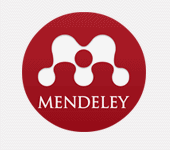Model of Implementation of Islamic Communication Values in Public Services: A Participatory Study at Haji Hospital Medan
Abstract
Effective communication is a fundamental element in public service bureaucracies, especially in the healthcare sector, which is complex, dynamic, and directly impacts human life. However, many public institutions including government hospitals continue to face serious communication problems, such as misinformation, lack of empathy, and rigid bureaucratic interaction styles. This study aims to develop an implementable and contextual model of Islamic communication values within the bureaucratic system of public health services, using a participatory approach at RS Haji Medan, a government hospital with a strong Islamic identity. The research adopts a qualitative applied method with a Participatory Action Research (PAR) framework, involving hospital managers, medical staff, administrative personnel, and patients as active collaborators in diagnosing problems, formulating values, and testing the model. Findings show that while values such as shidq (truthfulness) and amanah (trustworthiness) are relatively applied, others like tabligh (clarity), fathanah (communicative intelligence), and ihsan (excellence with empathy) remain inconsistently practiced and depend largely on individual initiative. A five-component model was developed: (1) core Islamic values, (2) SOP for Islamic communication, (3) ethical communication guidelines, (4) internal training programs, and (5) value-based feedback systems. The pilot implementation in outpatient and emergency units demonstrated improvement in patient-staff communication, increased staff confidence, and enhanced institutional accountability. This study concludes that Islamic communication values can be translated into practical tools and procedures to humanize public service communication, especially in healthcare bureaucracies. The model is recommended for replication in similar institutions across Indonesia seeking to integrate spiritual and ethical dimensions into public service delivery.
Keywords
Full Text:
PDFReferences
Ali, A., & Mahmood, B. (2016). Impact of Islamic Work Ethics on Organizational Commitment: Evidence from Pakistan. International Review of Management and Marketing, 6(S7), 123-129.
Al-Ghazali. (2008). Ihya' Ulumuddin [Kebangkitan Ilmu-Ilmu Agama]. Beirut: Dar al-Ma'arif.
Al-Qasimi, A. A. (2005). Komunikasi dalam Perspektif Islam. Jakarta: Rajawali Press.
Argyris, C., & Schön, D. (1996). Organizational Learning II: Theory, Method, and Practice. Reading, MA: Addison-Wesley.
Bridgman, P., & Davis, G. (2004). The Australian Policy Handbook. Allen & Unwin.
Cornwall, A., & Jewkes, R. (1995). What is Participatory Research? Social Science & Medicine, 41(12), 1667-1676. https://doi.org/10.1016/0277-9536(95)00127-S
Edgar, T., Hyde, J. N., & Johnson, C. M. (2008). Communication in Health Organizations. In Health Communication in Practice: A Case Study Approach (pp. 3-18). Mahwah, NJ: Lawrence Erlbaum Associates.
Epstein, R. M., & Street, R. L. (2007). Patient-Centered Communication in Cancer Care: Promoting Healing and Reducing Suffering. National Cancer Institute.
Fals-Borda, O. (1987). The Application of Participatory Action-Research in Latin America. International Sociology, 2(4), 329-347. https://doi.org/10.1177/026858098700200401
Frederickson, H. G., Smith, K. B., Larimer, C. W., & Licari, M. J. (2016). The Public Administration Theory Primer (3rd ed.). Boulder, CO: Westview Press.
Glaser, B. G., & Strauss, A. L. (1967). The Discovery of Grounded Theory: Strategies for Qualitative Research. New York: Aldine.
Handayani, R., & Mustofa, M. (2021). Strategi Komunikasi Pelayanan Publik Berbasis Etika dalam Organisasi Kesehatan. Jurnal Ilmu Komunikasi, 18(1), 45-60. https://doi.org/10.24002/jik.v18i1.4058
Harun, M. H. M., Ismail, I. A., & Omar, N. (2019). Integration of Islamic Work Ethics in Public Sector: A Conceptual Framework. Journal of Islamic, Social, Economics and Development (JISED), 4(22), 1-12.
Hermawan, H. (2019). Komunikasi Publik dalam Pelayanan Kesehatan: Analisis Etika dan Empati Komunikatif. Jurnal Administrasi Publik, 16(2), 101-115.
Jalaluddin, R. (2011). Psikologi Komunikasi. Jakarta: Kencana Prenada Media Group.
Kariyawan, Y. (2020). Komunikasi Interpersonal dalam Pelayanan Kesehatan Publik. Jurnal Komunikasi dan Kebudayaan, 7(1), 55-66.
Katz, D., & Kahn, R. L. (1978). The Social Psychology of Organizations (2nd ed.). New York: Wiley.
Mintzberg, H. (1979). The Structuring of Organizations: A Synthesis of the Research. Englewood Cliffs, NJ: Prentice-Hall.
Perry, J. L., & Wise, L. R. (1990). The Motivational Bases of Public Service. Public Administration Review, 50(3), 367-373.
Puchalski, C. M., et al. (2009). Improving the Quality of Spiritual Care as a Dimension of Palliative Care: The Report of the Consensus Conference. Journal of Palliative Medicine, 12(10), 885-904. https://doi.org/10.1089/jpm.2009.0142
Reason, P., & Bradbury, H. (2008). The SAGE Handbook of Action Research: Participative Inquiry and Practice (2nd ed.). London: SAGE Publications.
Robbins, S. P., & Judge, T. A. (2013). Organizational Behavior (15th ed.). Boston: Pearson Education.
Shannon, C. E., & Weaver, W. (1949). The Mathematical Theory of Communication. Urbana: University of Illinois Press.
Stufflebeam, D. L., & Shinkfield, A. J. (2007). Evaluation Theory, Models, and Applications. San Francisco: Jossey-Bass.
Van de Ven, A. H. (2007). Engaged Scholarship: A Guide for Organizational and Social Research. Oxford: Oxford University Press.
DOI: http://dx.doi.org/10.30829/jai.v14i1.25398
Refbacks
- There are currently no refbacks.
Copyright (c) 2025 Muhammad Faisal Hasrimy, Abdullah Abdullah

This work is licensed under a Creative Commons Attribution-ShareAlike 4.0 International License.





